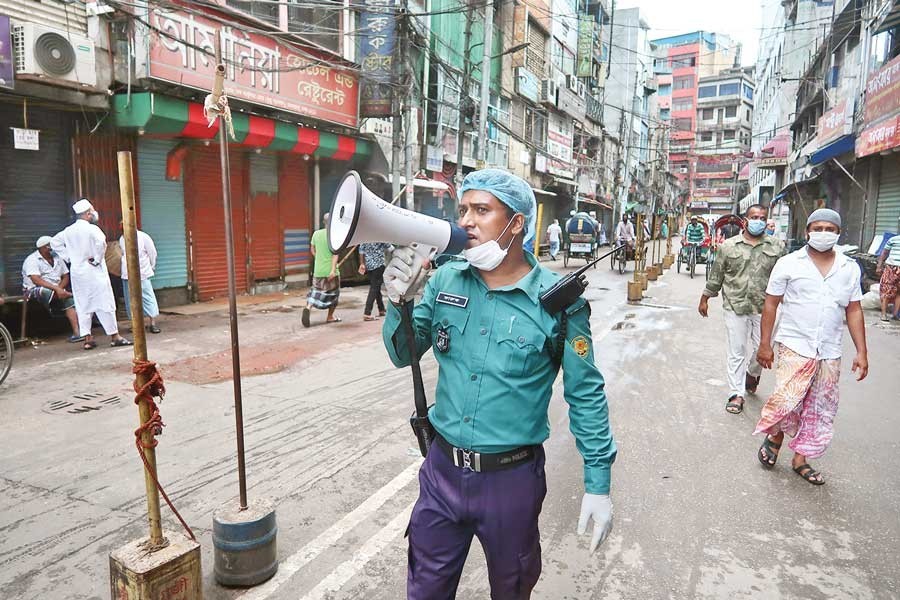Siyam Hoque
Published:2020-04-27 17:17:48 BdST
City Iftar hub falls silent on virus.
NEWS DESK
For the first time in the country's history, city dwellers are breaking their fast without traditional food items this Ramadan as most of outlets remain closed due to the countrywide shutdown amid Covid-19 outbreak.
Closure of iftar outlets, however, has hit hard seasonal traders who used to earn some additional money by selling iftar items on roadsides during Ramadan.
Chawkbazar, a hub oftraditional Mughal delicacies during Ramadan, also remains closed due to the shutdown.
Iftar outlets in some other food hubs like 300-feet road, 60-feet road, and Satmashjid road also remain shut.
However, food outlets like Star Kebab, DSS, Yummy, BFC, Mama Halim, RFC, Fakruddin, Lailaty, and other fast-food outlets and restaurants get some business through parcel and online sale.
Md Selim Baburchi (chef), who sells most popular delicacy at Chawk- 'boro baper polay khai' - a mixture of chickpea, brain, minced meat, potato, chira (flattened rice), egg, chicken, spices and ghee, told the FE that they were incurring huge losses due to the shutdown.
He said the virus pandemic has come as a double blow as all kinds of catering services remained closed while they were also losing iftar trade.
Four of his teams earned Tk 0.185 million last Ramadan by selling 'boro baper polay khay', mutton leg roast, suti kebab, chicken roast and others, he added.
"We opted to open temporary Iftar shops, but police were announcing from Friday evening to keep them shut this year to maintain physical distance," he said.
It is for the first time,Chawkbazar remains shut during Ramadan.
Md Farid Uddin, an employee of a vegetable wholesale at Rayer Bazar, used to sell Iftar items every Ramadan.
He usually sells cooked chickpea, puffed rice, beguni (fried brinjal soaked with pulses powder), piaju, potato chop, cucumber, coriander leaf, etc.
Talking to the FT over cell phone, Mr Farid said he earned Tk 22,000 last Ramadan through Iftar sale.
"This year there is no alternative income source in the city creating hardship for commoners," he said.
Meanwhile, Bangladesh Standards and Testing Institution (BSTI) banned sales, distribution, storing and commercial advertising of 17 products of 12 companies, a press release said.
Unauthorized use or reproduction of The Finance Today content for commercial purposes is strictly prohibited.


